Top 5 Health Benefits of Asparagus
Asparagus, scientifically known as Asparagus officinalis, is a lily family member. This popular veggie is available in several hues, including green, white, ... read more...and purple. It's used in a variety of meals across the world, including frittatas, kinds of pasta, and stir-fries. Asparagus is low in calories and high in vitamins, minerals, and antioxidants. This article discusses the best asparagus health benefits.
-
Asparagus has a low-calorie count but a high nutritional profile. In fact, just half a cup (90 grams) of cooked asparagus contains:
- Calories: 20
- Protein: 2.2 grams
- Fat: 0.2 grams
- Fiber: 1.8 grams
- Vitamin C: 12% of the RDI
- Vitamin A: 18% of the RDI
- Vitamin K: 57% of the RDI
- Folate: 34% of the RDI
- Potassium: 6% of the RDI
- Phosphorous: 5% of the RDI
- Vitamin E: 7% of the RDI
Asparagus contains trace levels of additional minerals such as iron, zinc, and riboflavin. It's high in vitamin K, a vital component linked to blood clotting and bone health. Furthermore, asparagus is high in folate, a vitamin that is essential for a healthy pregnancy as well as many crucial bodily activities such as cell development and DNA creation.
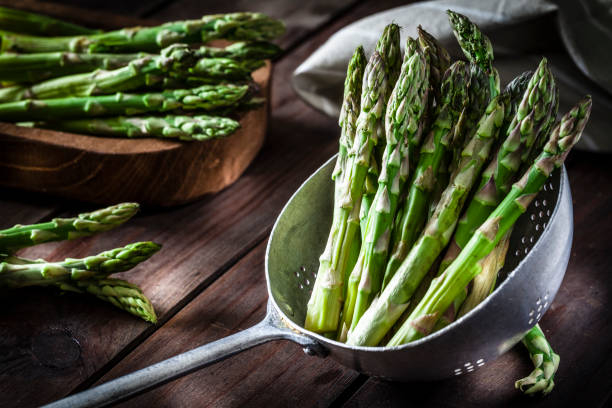
Many Nutrients But Few Calories 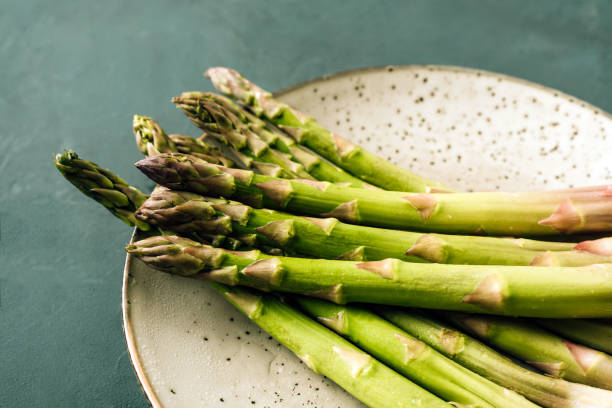
Many Nutrients But Few Calories -
Antioxidants are substances that protect your cells from the damaging effects of free radicals and oxidative stress. Oxidative stress has a role in aging, chronic inflammation, and a variety of disorders, including cancer. Asparagus is abundant in antioxidants, as are other green vegetables. Vitamins E, C, and glutathione are among them, as are flavonoids and polyphenols. Asparagus has large levels of the flavonoids quercetin, isorhamnetin, and kaempferol.
In a variety of human, test-tube, and animal investigations, these compounds were discovered to have blood pressure-lowering, anti-inflammatory, antiviral, and anticancer activities. Furthermore, purple asparagus includes anthocyanins, which give the vegetable its brilliant color and have antioxidant properties in the body. Indeed, increasing anthocyanin consumption has been demonstrated to lower blood pressure as well as the risk of heart attacks and heart disease. Consuming asparagus, along with other fruits and vegetables, may give your body a variety of antioxidants that promote health.
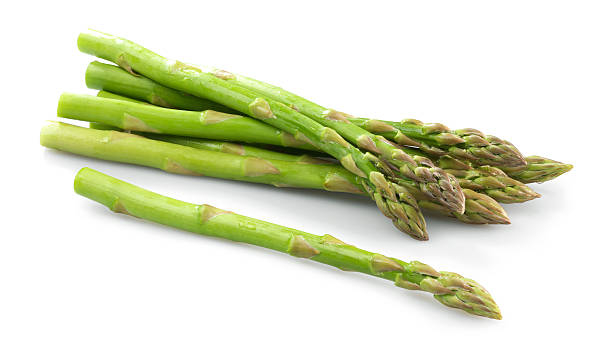
Good Source of Antioxidants 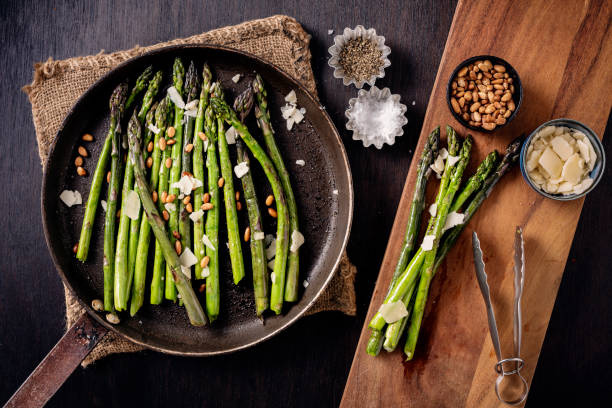
Good Source of Antioxidants -
Dietary fiber is necessary for intestinal health. Half a cup of asparagus has 1.8 grams of fiber, which is 7% of your daily need. A diet high in fiber-rich fruits and vegetables may help lower the risk of high blood pressure, heart disease, and diabetes, according to research. Asparagus is abundant in insoluble fiber, which adds volume to the stool and promotes regular bowel motions. It also has soluble fiber, which dissolves in water and creates a gel-like material in the digestive tract.
Friendly bacteria in the gut, such as Bifidobacteria and Lactobacillus, are fed by soluble fiber. Increasing the number of these good bacteria aids in the immune system's strength and the production of critical nutrients such as vitamins B12 and K2. Consuming asparagus as part of a fiber-rich diet is an excellent method to achieve your fiber requirements while also keeping your digestive system healthy.
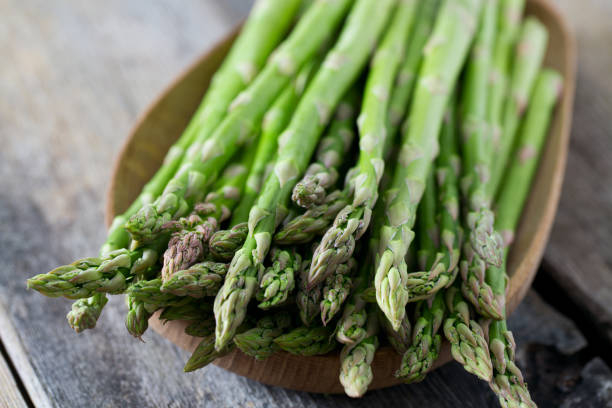
Can Improve Digestive Health 
Can Improve Digestive Health -
Asparagus is high in folate, which is also known as vitamin B9. Half a cup of asparagus provides individuals with 34% of their daily folate needs and pregnant women with 22% of their daily folate needs. Folate is a vital vitamin that aids in the formation of red blood cells as well as the production of DNA for proper growth and development. It is especially critical during the early stages of pregnancy to ensure the baby's proper growth.
Getting enough folate from foods like asparagus, green leafy vegetables, and fruit can help prevent neural tube problems like spina bifida. Neural tube anomalies can cause a variety of challenges, including learning difficulties, bowel and bladder control issues, and physical limitations. In fact, enough folate is so important during pre-pregnancy and early pregnancy that women are advised to take folate supplements to ensure they achieve their requirements.
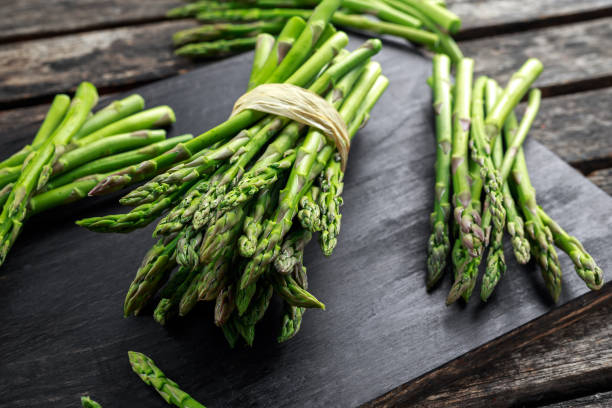
Support a Healthy Pregnancy 
Support a Healthy Pregnancy -
More than 1.3 billion individuals worldwide suffer from high blood pressure, which is a major risk factor for heart disease and stroke. According to research, increasing potassium consumption while decreasing salt intake is an effective method to reduce high blood pressure. Potassium reduces blood pressure by relaxing blood vessel walls and excreting excess salt through urine.
Asparagus is high in potassium, supplying 6% of your daily need in a half-cup portion. Furthermore, studies in rats with high blood pressure indicate that asparagus may have additional blood pressure-lowering characteristics. In one research, rats were fed either a diet containing 5% asparagus or a regular diet containing no asparagus. The rats on the asparagus diet had 17% lower blood pressure after 10 weeks than the animals on the normal diet.
This effect was thought to be caused by an active chemical in asparagus that stimulates blood vessels to widen. Human studies, however, are required to evaluate whether this active chemical has the same impact on humans. In any event, eating more potassium-rich vegetables, such as asparagus, is an excellent approach to help maintain healthy blood pressure.
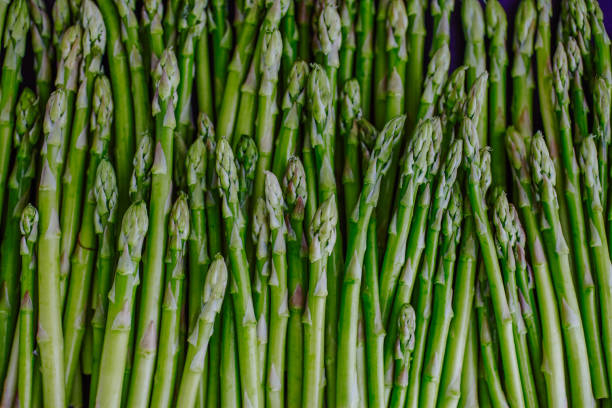
Lower Blood Pressure 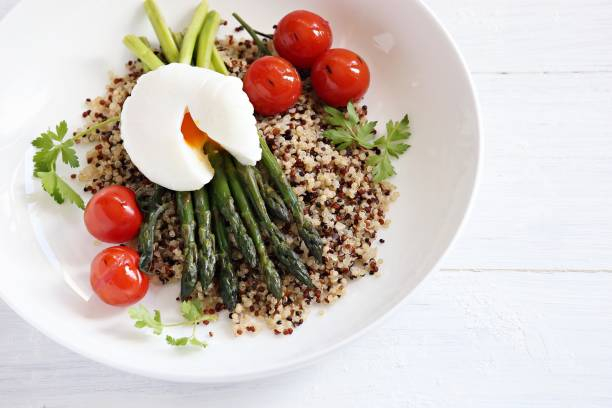
Lower Blood Pressure


























